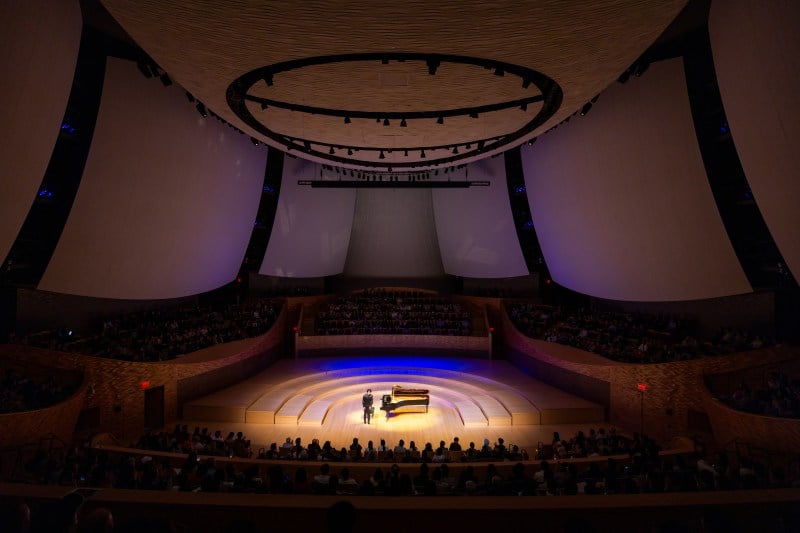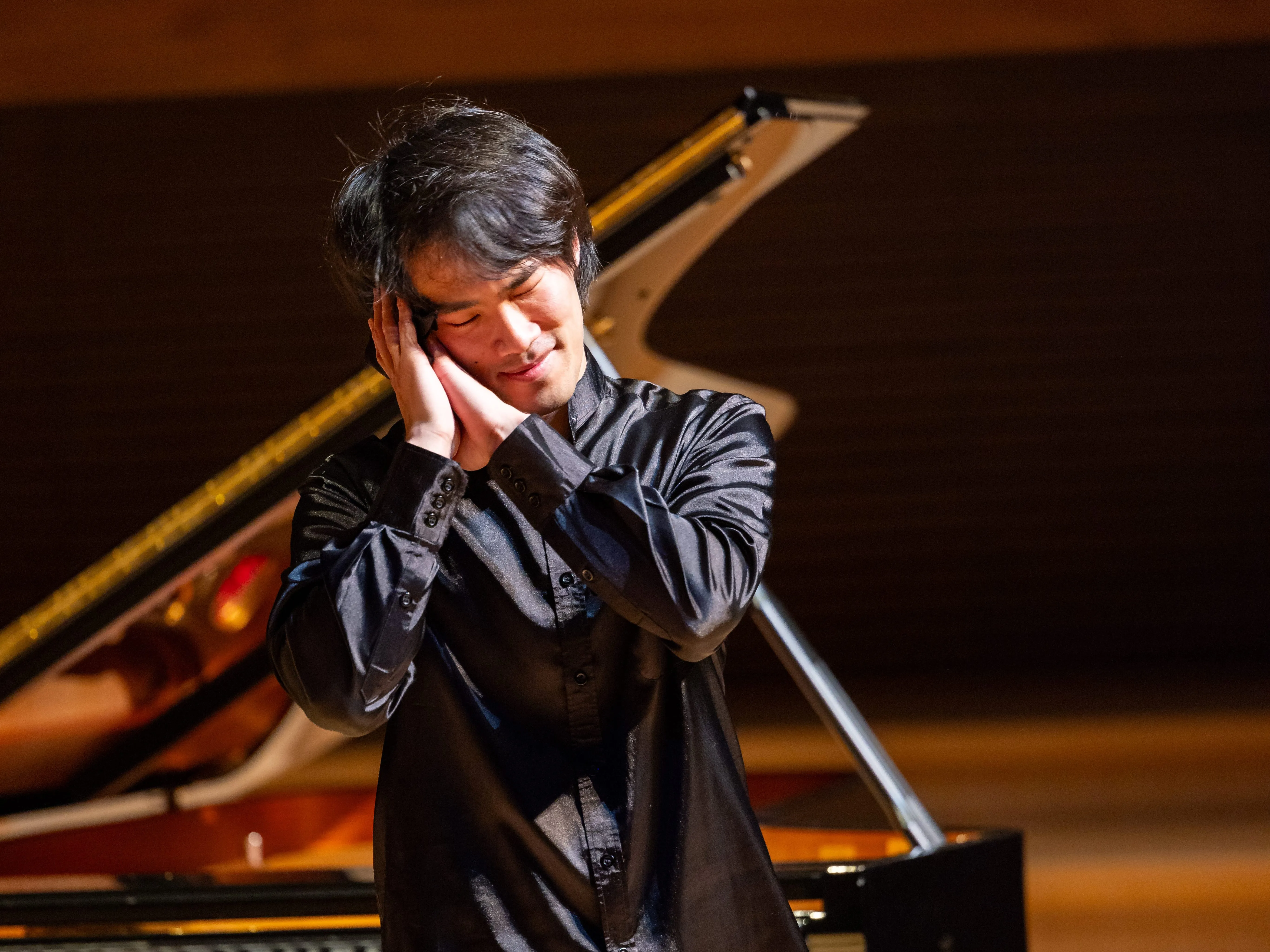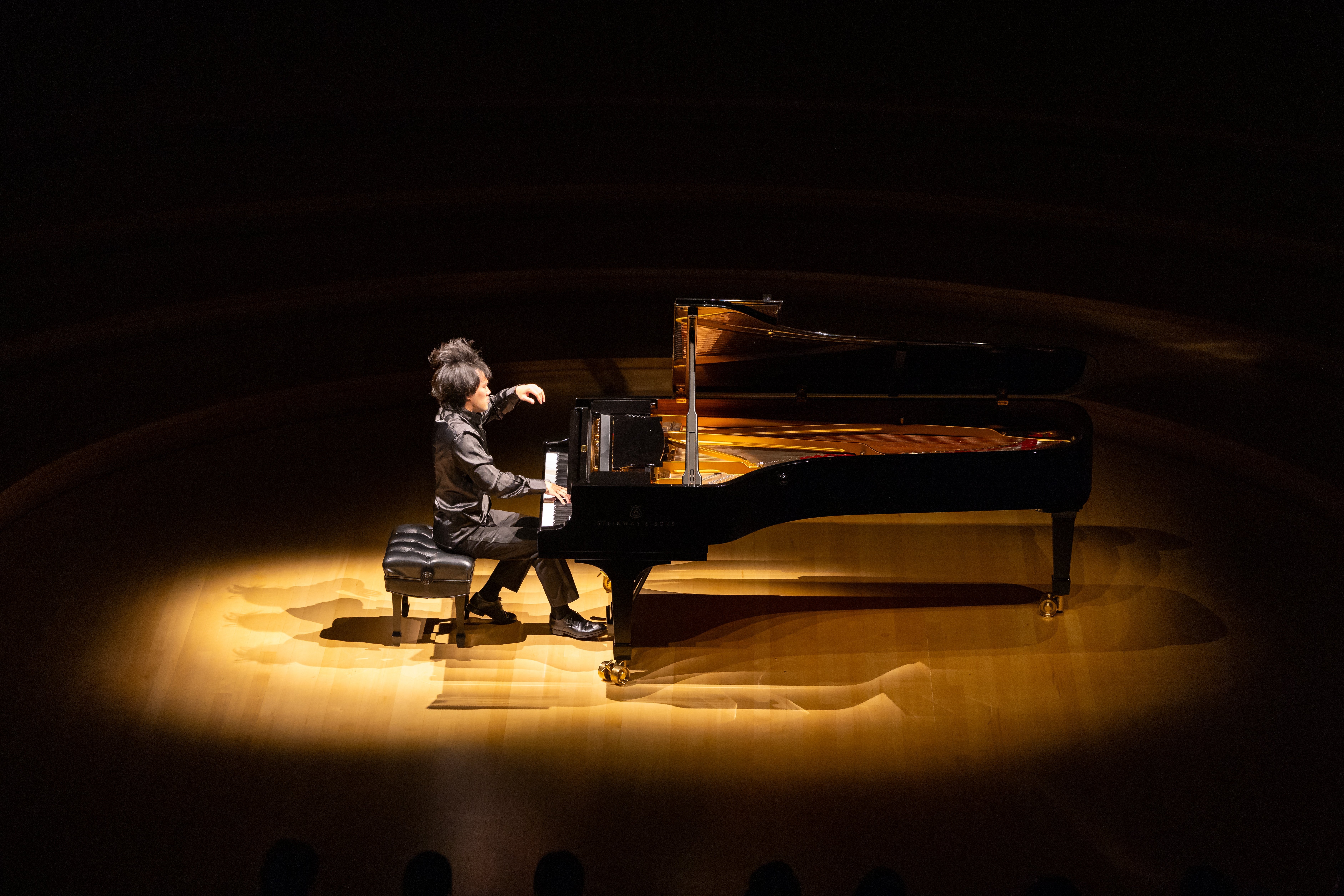This article is a review and includes subjective thoughts, opinions and critiques.
Pianist Bruce Liu delivered deeply-wrought, masterful and tireless performances at Bing Concert Hall last week.
The young Canadian pianist is known for winning the 18th Chopin Piano Competition in 2021. He played a diverse program spanning multiple ages and genres from Haydn to Kapustin on Tuesday and Wednesday.
“Contrast is very important to me,” Liu said of the anachronistic program. In this week’s performances, Liu contrasted Chopin’s second piano sonata and Kapustin’s Op. 41 Variations.
“Your soul is put in the deepest possible place in Chopin’s funeral march. And, from this grave, you start dancing with jazz. It’s like going from Hell to Heaven,” Liu said.

On the night of the concert, the house is full as the lights dim to a soft blue hue. A spotlight centers the piano. Liu walks out to a simple bow, then begins straight away with Haydn’s Sonata No. 47 in B minor. The simplicity of his entrance signaled Liu is not here to put on a show — he is here to give a concert.
In the opening piece, Liu made masterful use of Bing’s acoustics through well-enunciated silences and delicate pedaling. He has a wonderful ability of surprising himself with every rubato.
His subsequent Chopin Sonata No. 2 was an absolute engine. In the first movement, Liu’s steady crescendos grew like a monster from the inside. His music has the unique capacity to harbor a significant amount of chaos without ever reaching the breaking point.
In the second movement, he plunges us into a self-contained world of his own creation, although sometimes to the extent of losing certain less patient audience members. Nonetheless, Liu has a gift of sustaining and transmitting his contagiously rich inner world.
My favorite part of the concert was the third movement, when the melody from the theme comes in. You could hear a pin drop in the audience. As always, his melodies were captivating, transportative, delicate yet unpredictable. If you blink, you might just remember that you are, after all, still sitting in a concert hall.
The fourth and final movement of the sonata was truly masterfully conceived and executed. The quality of his sound was akin to a self contained earthquake, buried low beneath the earth, or a constant rumble in an anxious city.
Liu’s Kapustin was tangy and a little sly. He teased out lower register melodies with subtle playfulness. The piece is heavier on its feet than traditional jazz, and Liu makes more of the melodies in his phrasing than a jazz musician would. Nevertheless, Liu brought out a jazzy, sticky, waltzy quality to his variations. If his Kapustin is an ascent into heaven, then Liu’s heaven is in many ways more of a nostalgia for Earth.
After intermission, Liu led with a simple yet elegant, almost clerical Rameau. The way he handled suspensions in this piece in conjunction with Bing Concert Hall’s acoustics was absolutely masterful. Liu creates such a convincing self-contained world that his silences feel loud. His Rameau transported me to the architecture of churches in France, yet the electric nature of his playing felt very secular. Begging the question, has the concert hall become the modern-day secular equivalent of a church?
Last but not least, Liu’s Prokofiev was incredibly confident. To an untrained ear, Prokofiev can sometimes sound atonal but Liu imbues it with such intention, tension, struggle and direction that it’s undeniably interesting to watch and listen to. His rhythmic left hand octaves resemble sure-footed giants storming through what could only be an earthly hell or a hellish earth. He has a true gift for making sound seem like it’s entering from a backroom. Yet in the most virtuosically demanding moments, he looks a little like a rag doll. Sometimes I am not sure whether he is the puppet or the puppeteer, whether he is playing the music or whether the music is playing him.

Liu gestured that he will go to sleep, after no fewer than three encores. The first of which was Bach, a subtle indication of the kind of musician he is. He ended with a Chopin waltz and nocturne before his final bow.
It was a beautiful concert. Bruce Liu is a tremendous, certainly virtuosic, captivating, wrought, pianist of the modern age.
